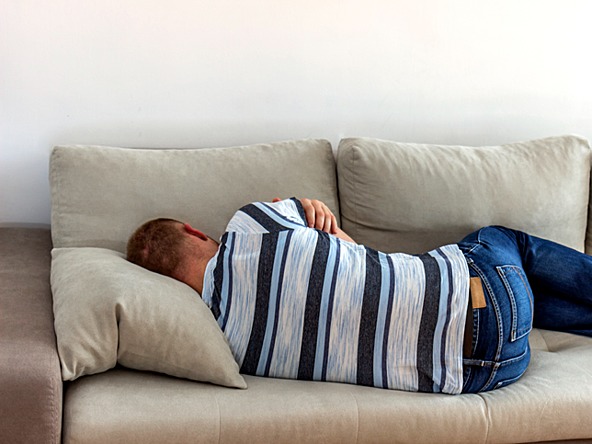Walnut Unlimited study examines impact of ‘sofa-surfing’

The research follows a competition run by the Market Research Society (MRS) to promote understanding of homelessness, won by a team of young researchers from Walnut Unlimited.
The project involved a large-scale survey of people who had experienced sofa-surfing or had hosted a sofa surfer, attracting 551 responses, followed by 20 in-depth interviews.
The survey found that sofa surfing is caused by several factors, with 62% citing relationship breakdowns and difficulties, 61% financial issues, 59% housing problems and 30% health factors.
Sofa-surfing had an impact on health and wellbeing, with 37% of participants saying their housing situation had negatively affected their ability to continue with educational courses/groups, 33% their physical health and 22% their mental health.
Participants reported challenges in accessing support, with 36% saying waiting lists for services were too long, 34% mentioning a lack of awareness of support and another 34% citing a lack of access.
The project showed many sofa surfers do not consider themselves to be homeless, despite similarities with other forms of homelessness, as while they had somewhere to stay, it was a temporary solution and often without private space.
Participants explained that they were reluctant to ask for support due to embarrassment or feeling that others have a greater need, and many were unaware of what services could help them or whether they were eligible.
Hannah Kilshaw, research director at Walnut Unlimited, said: “There are a range of factors that can tip someone into experiencing sofa surfing, including relationship breakdowns and financial difficulties, but few are prepared for the experience of sofa surfing and how it can impact their lives.
“While every experience is individual, our findings suggest a need for improving awareness and support for those who experience sofa surfing and those that host them, particularly around prevention and early intervention.”
Reta Robinson, interim executive director of strategy and development at St Mungo’s, said: “As a leading homelessness charity, St Mungo’s provides support to thousands of people each day and night, and we see first-hand just how physically and mentally demanding it is for somebody to be without a home, and how this increases vulnerability.
“It is good to see this research providing an evidence-base around people’s experiences of sofa-surfing, and agree that a greater focus on prevention is necessary to stop people from becoming homeless in the first instance.”
Jane Frost, chief executive at MRS, said: “Understanding this demographic is an incredibly important part of supporting people who are homeless, and this project raises awareness of what can easily be an otherwise invisible group.
“The importance of this research cannot be overstated, especially considering the rise in the cost of living. MRS is proud to have supported the project, which has also given younger researchers vital experience, helping their future careers.”
Neil Preddy, vice-chair at Oxfordshire Homeless Movement, added: “The report helps us to understand this issue better and points to practical actions we can take, such as early intervention to prevent issues from escalating.
“It also highlights the systemic factors, like high housing costs and insecure tenure, that are the underlying cause of sofa surfing, which are likely to worsen as the cost-of-living crisis takes hold.”
For more information on this project, please click here.

We hope you enjoyed this article.
Research Live is published by MRS.
The Market Research Society (MRS) exists to promote and protect the research sector, showcasing how research delivers impact for businesses and government.
Members of MRS enjoy many benefits including tailoured policy guidance, discounts on training and conferences, and access to member-only content.
For example, there's an archive of winning case studies from over a decade of MRS Awards.
Find out more about the benefits of joining MRS here.














0 Comments